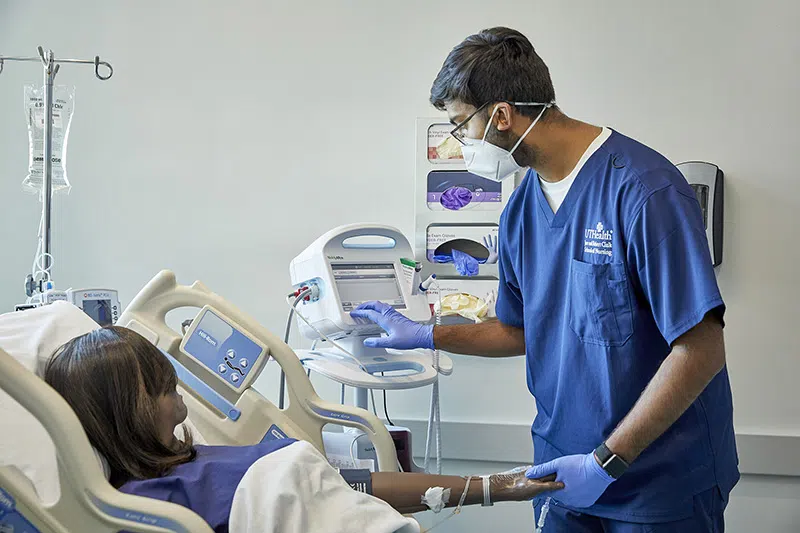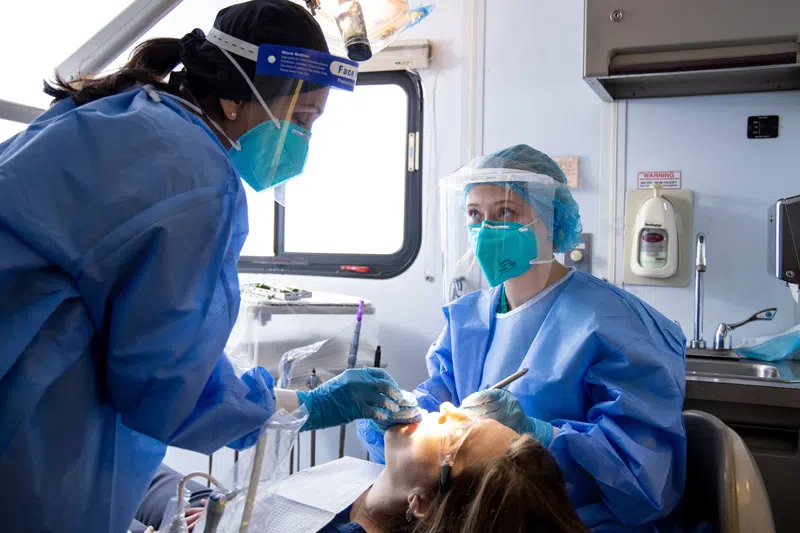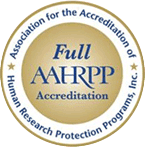POLICY
All human subject research proposals must be reviewed at a convened full board meeting unless they are determined to be exempt or qualify for expedited review. IRB must receive and review adequate information to determine whether the criteria for approval have been met.
In order for a research proposal to be approved, IRB shall consider the following criteria (regulatory criteria for approval):
- Risks to subjects are minimized by using procedures that are consistent with sound research design and that do not unnecessarily expose subjects to risk, and whenever appropriate, by using procedures already being performed on the subjects for diagnostic or treatment purposes.
- Risks to subjects are reasonable in relation to anticipated benefits, if any, to subjects, and the importance of the knowledge that may reasonably be expected to result. In evaluating risks and benefits, the IRB should consider only those risks and benefits that may result from the research (as distinguished from risks and benefits of therapies subjects would receive even if not participating in the research). The IRB should not consider possible long-range effects of applying knowledge gained in the research (e.g., the possible effects of the research on public policy) as among those research risks that fall within the purview of its responsibility.
- Selection of subjects is equitable. In making this assessment the IRB should take into account the purposes of the research and the setting in which the research will be conducted. The IRB should be particularly cognizant of the special problems of research that involves a category of subjects who are vulnerable to coercion or undue influence, such as children, prisoners, individuals with impaired decision-making capacity, or economically or educationally disadvantaged persons.
- Informed consent will be sought from each prospective subject or the subject's legally authorized representative.
- Informed consent will be appropriately documented or appropriately waived.
- When appropriate, the research plan makes adequate provision for monitoring the data collected to ensure the safety of subjects.
- When appropriate, there are adequate provisions to protect the privacy of subjects and to maintain the confidentiality of data.
- For purposes of conducting the limited IRB review for exemption category 7, the IRB shall make the following determinations:
- Broad consent for storage, maintenance, and secondary research use of identifiable private information or identifiable biospecimens is obtained;
- Broad consent is appropriately documented or waiver of documentation is appropriate; and
- If there is a change made for research purposes in the way the identifiable private information or identifiable biospecimens are stored or maintained, there are adequate provisions to protect the privacy of subjects and to maintain the confidentiality of data.
When some or all of the subjects are likely to be vulnerable to coercion or undue influence, such as children, prisoners, individuals with impaired decision-making capacity, or economically or educationally disadvantaged persons, additional safeguards have been included in the study to protect the rights and welfare of these subjects.
PROCEDURE
Submission for Initial Review – IRB members rely on the materials submitted by researchers for their review of the research to determine whether criteria for approval are met. Therefore, the material submitted must provide IRB members with adequate information about a research proposal to assess if it meets the criteria for approval. If needed, the IRB staff will request additional information. The materials submitted for initial review should include:
- Completed application form in iRIS,
- Protocol,
- Informed consent documents, if applicable,
- Investigator Brochure/package insert, if applicable,
- Recruitment materials, if being used,
- Memorial Hermann Application, if applicable,
- Data collection forms/case report forms, if applicable,
- CVs for the PI and Co-PIs,
- Letters of support, if applicable,
- DSMB charter and roster, if applicable,
- Any other information necessary to conduct an adequate review of the proposed research.
IRB Review Process – Initial applications from schools other than the Medical School, should be routed for review and sign off by the department chair of the Principal Investigator’s department. The routing process within iRIS requires PI’s to submit RCOI certification. When a PI discloses a financial interest, the IRB staff notify the Conflict of Interest office. If a management plan was developed, the plan is added to the iRIS documents and is available to the reviewers.Initial applications from medical school that do not qualify for exemption or review by expedited category must go through the departmental review process. A completed department review form must be submitted with the initial review submission packet.
IRB staff will screen the proposal to ensure that the information provided is adequate and schedule a proposal for IRB review only when it is determined that the information and materials submitted provide an adequate description of the proposed research. For submissions that need to be reviewed at a convened meeting, IRB staff will assign the proposal to the first IRB panel that is scheduled to meet at least 10 days after the date of receipt of the complete proposal. If the first IRB panel has too many items on its agenda, the proposal is assigned to the next IRB panel.
IRB staff assign the proposal to a subcommittee formed from IRB members of the IRB panel that the proposal is assigned. IRB staff assign the proposal at least 7 days before the scheduled meeting. The subcommittee consists of a subcommittee chair and two members. The subcommittee will conduct an in-depth review of all pertinent information provided by the investigator. This review may include discussions with the investigator to clarify issues. The subcommittee may also call upon consultants for additional expertise. All the other members have access to complete documentation for all the protocols and are expected to review at least the protocol summary, consent documents and recruitment materials.
The subcommittee chair, or his/her designee, will provide an overview of the research proposal, identify the subcommittee’s specific concerns and make a motion to approve, approve pending, defer or disapprove. The IRB panel chair opens the research proposal for discussion by all attending IRB members. For proposals that qualify for expedited review, see policy and procedure expedited review.
When a research proposal involves participants likely to be vulnerable to coercion or undue influence, the convened IRB will ensure that at least one member knowledgeable in working with the specific populations will be present at the meeting.
Independent Consultant – The IRB may, at its discretion, invite individuals with competence in special areas to assist in the role of consultants in the review of complex issues which require expertise beyond or in addition to that available on the IRB. The IRB chair, subcommittee chair or any member may request for consultant review. The IRB director works with the subcommittee chair, IRB chair or executive chair to identify a suitable consultant.
IRB staff will ensure that all material in the submission packet described in the policy on Initial Review is provided to the Independent consultant. This information may be provided via access to iRIS, electronic submission (email) or paper copy. The consultant will submit a written response via iRIS, email or written letter to the IRB staff. IRB staff will ensure that the consultant’s comments are posted in iRIS for review by all IRB members. Consultants may be invited to an IRB meeting to aid the discussion; however they may not participate in the voting process.
Possible Outcome of Review - After review, the IRB must take one of the following possible actions:
- Approve - An approval is granted if the research meets the criteria for approval as stated above and no changes are recommended to the research proposal.
- Approve Pending – The IRB may approve a research study pending specific non-substantive modifications. The researcher’s responses to an approved pending, may be reviewed by the IRB office.
- Deferred - When the IRB requests substantive modifications or clarifications directly relevant to the criteria of approval stated above, IRB approval of the proposed research is deferred. The researcher’s responses to the deferral are reviewed at a convened IRB meeting.
- Disapproval: The IRB may disapprove a research proposal if the proposal does not meet the criteria for approval as stated above. If the IRB decides to disapprove a research activity, IRB staff will include in a written notification a statement of the reasons for the IRB decision via iRIS and give the investigator an opportunity to respond in person or in writing. The investigator has the ability to appeal the disapproval via the Appeals to IRB Decision policy.
- Tabled: A research proposal may be tabled until another meeting due to lack of review. In the event of a loss of quorum, all incomplete agenda items shall be considered tabled until quorum can be reconstituted at a convened meeting.
Period of Approval - In general, IRB approval is for one year. If the protocol under review involves a high degree of risk and/or the stage of the research is such that many of the potential risks are not yet known, the IRB will consider an approval period of less than one year. Examples of research projects where approval periods of less than one year may be appropriate include, but are not limited to:
- Phase 1 drug trials
- Gene therapy trials
- Investigator initiated IND/IDE trials
- Projects with limited background information
- Projects where significant risks are expected and no direct benefits have been identified
- Projects that specifically target vulnerable populations
- Projects where the investigator has limited experience
- Projects where there has been compliance related issues with the investigator.
When a research study is approved without any conditions at a convened meeting for a period of one year, the approval date is the date of the convened IRB meeting at which the protocol was approved. The expiration date is the last day of the month before the anniversary date of approval.
When a research study is approved pending modifications for a period of one year, the approval date is the date of the convened IRB meeting at which the protocol was approved pending modifications. The expiration date remains the last date of the month before the anniversary of the date of the meeting at which approval pending decision was made.
Notification – IRB staff will convey the decisions and the stipulations requested by the IRB promptly to the Principal Investigator via iRIS. The Institutional Official has access to all protocols on iRIS and can review all IRB decisions and stipulations.
APPLICABLE REGULATIONS
- 45 CFR 46 Protection of Human Subjects
- 21 CFR 50 Protection of Human Subjects
- 21 CFR 56 Institutional Review Board
- OHRP Guidance – Approval of Research with Conditions
REFERENCES TO OTHER POLICIES
- Informed Consent
- Expedited Review
- Appeals to CPHS Decision
ATTACHMENTS
- Initial Application Form
- COI Notification
- Initial Review - Approval Letter
- Initial Review – Approval Pending Letter
- Initial Review – Disapproval Letter
If you find errors in this document, contact [email protected]
|
Document Number:
|
101-C03
|
|
Reviewed by:
|
Executive Director, Research Compliance
|
|
Effective:
|
1 Aug 2008
|
|
Revision History:
|
1 Jan 2009; 1 Aug 2011; 1 Jun 2016; 19 Jan 2018, 1 Jun 2021
|
CPHS HELPLINE 713-500-7943
iRIS HELPLINE 713-500-7960
UTHealth’s Compliance Hotline (1-888-472-9868)
IRB OFFICE HOURS Thursdays from 1 to 4pm, via the Teams Room at this link
How can we improve this site?


 Featured Donor
Featured Donor











